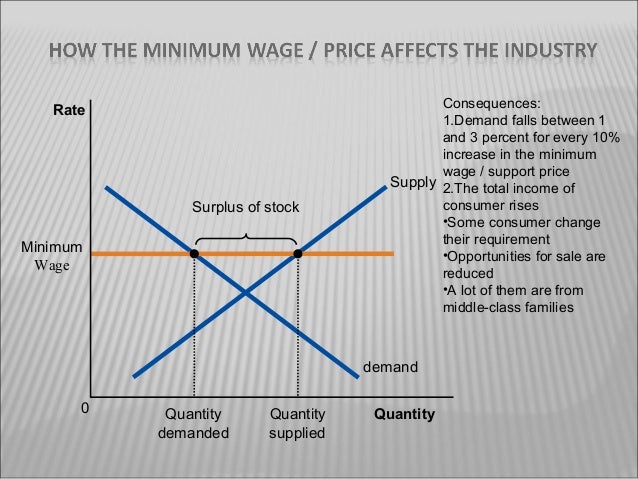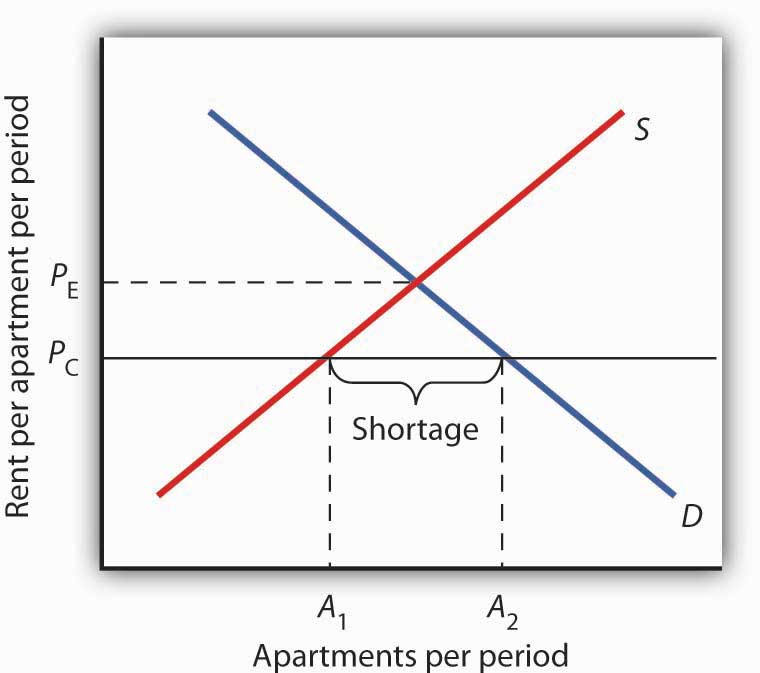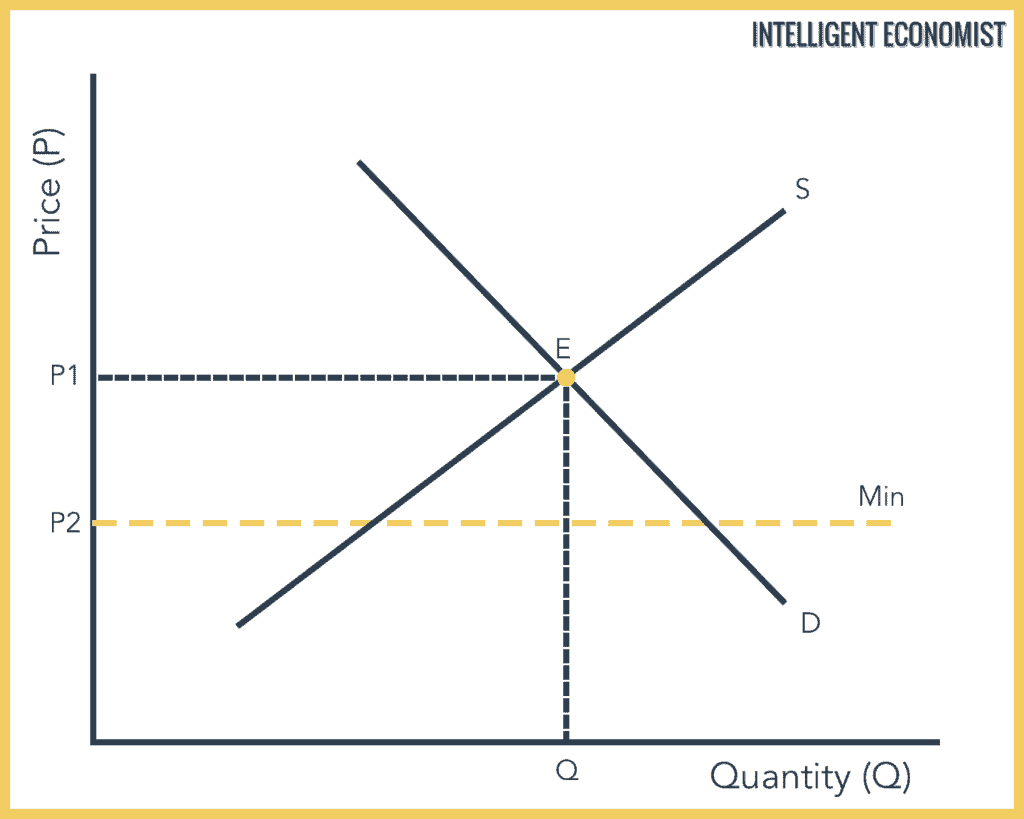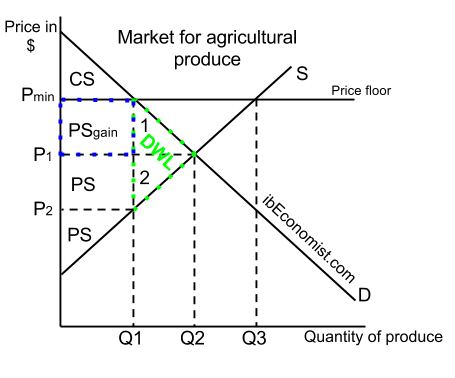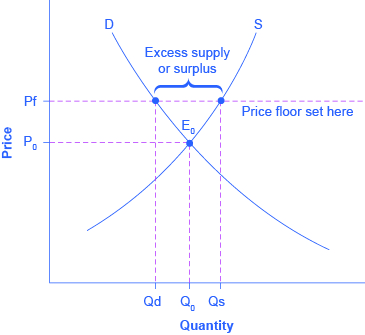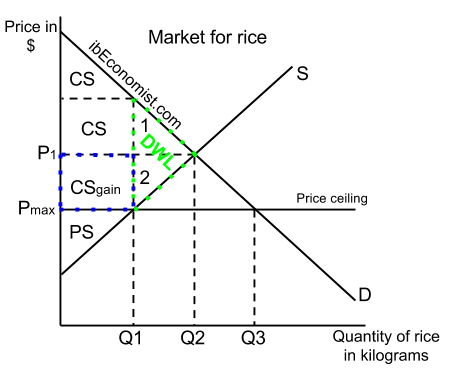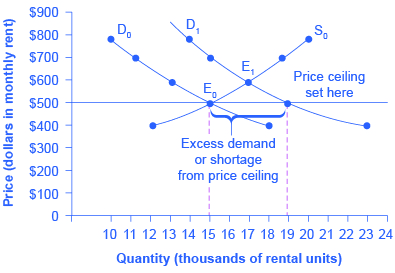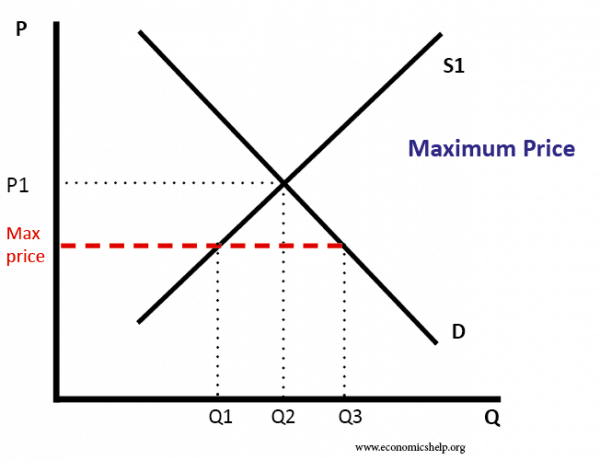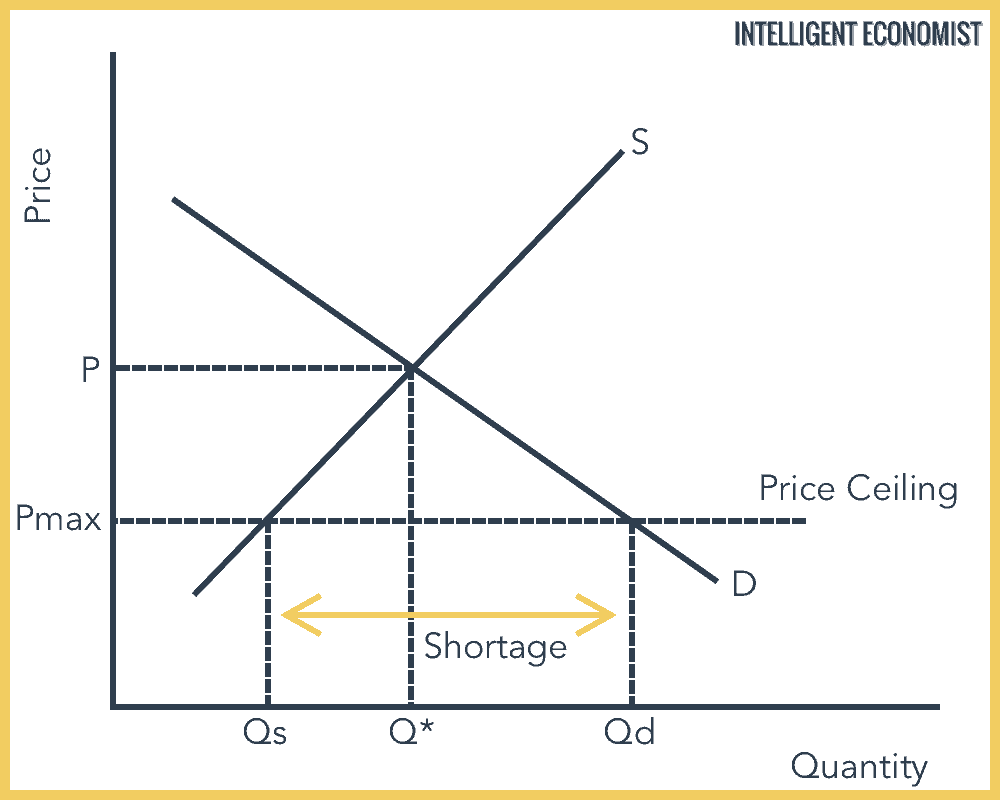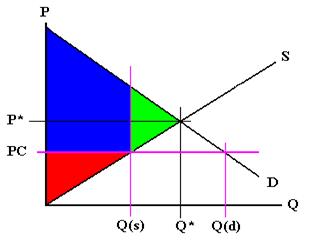Consequences Of A Pirce Floor

Price floor has been found to be of great importance in the labour wage market.
Consequences of a pirce floor. The government is inflating the price of the good for which they ve set a binding price floor which will cause at least some consumers to avoid paying that price. When the price is above the equilibrium the quantity supplied will be greater than the quantity demanded and there will be a surplus. The equilibrium price commonly called the market price is the price where economic forces such as supply and demand are balanced and in the absence of external. Price floor is enforced with an only intention of assisting producers.
A price floor must be higher than the equilibrium price in order to be effective. A binding price floor is a required price that is set above the equilibrium price. Price floor is a situation when the price charged is more than or less than the equilibrium price determined by market forces of demand and supply. This has the effect of binding that good s market.
However price floor has some adverse effects on the market. A price floor is the lowest legal price that can be paid in markets for goods and services labor or financial capital. Government enforce price floor to oblige consumer to pay certain minimum amount to the producers. By observation it has been found that lower price floors are ineffective.
A price floor is a government or group imposed price control or limit on how low a price can be charged for a product good commodity or service. Implementing a price floor. Government set price floor when it believes that the producers are receiving unfair amount.



